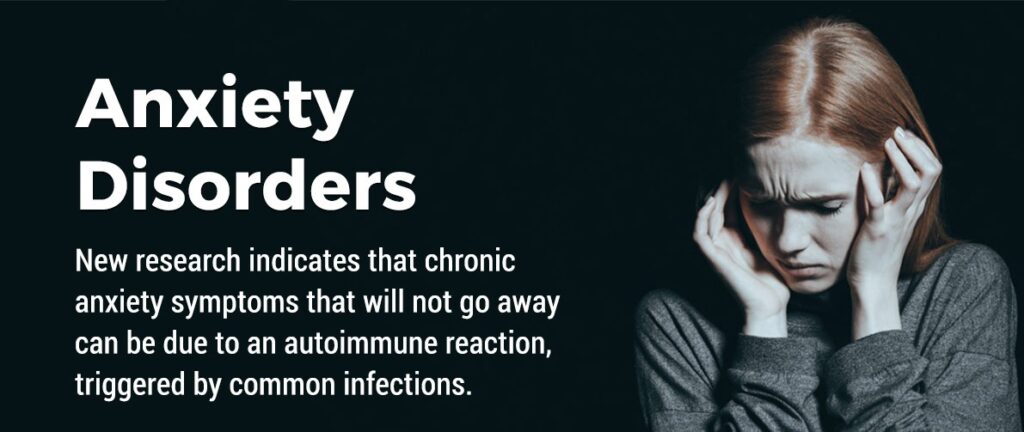This post will explain Chronic anxiety symptoms. When something frightens you all of a sudden, like a loud noise, it sets off stress hormones (adrenaline, noradrenaline, cortisol) that secure your heart pound much faster and harder. You might seem like it’s beating unevenly (heart palpitations). Gradually, if it occurs excessive, you’re more likely to have hypertension, cardiovascular disease, hardened arteries, high cholesterol, stroke, and heart attack.
Anxiety & Panic Disorders Physical Symptoms of Anxiety
In this article, you can know about Chronic anxiety symptoms here are the details below;
Fast Breathing
In addition to a pounding heart, you may start breathing faster when you’re frightened or distressed, or seem like you can’t get enough air. Some people breathe so quickly that they get light-headed or lose consciousness. It can be major if you already have breathing issues because of asthma, lung illness, persistent obstructive lung disease (COPD), and other conditions.
Battle or Flight Action
It’s a set of signs you get when you respond to something scary. Your scare activates the release of particular hormonal agents that send out signals through your brain, spine, and nerves. Blood & fuel (glucose) floods to your arms & legs to prepare to fulfill the risk with one of two options: battle or flee. Your pulse and breathing accelerate. You also might get sweaty and unstable.
Tense Muscles
Your body prepares yourself to safeguard itself when you’re anxious. If you’re truly surprised, your muscles tense simultaneously. They typically relax as soon as the tension passes, but if it happens a number or if you feel anxious all the time, your tight shoulder & neck tissues can cause headaches, consisting of migraines. Relaxation techniques like deep breathing and yoga might assist.
High Blood Glucose
Tension hormones can provide you a burst of this immediate fuel when you’re frightened or distressed. It’s useful if you require to run from danger or battle it. Usually your body gathers and shops the extra sugar. But high or continuous anxiety could keep your blood sugar level too expensive for too long. This can point to diabetes as strong as heart problem, stroke, and kidney illness.
Sleep Issues
Worry can keep you up during the night. “Did I pay the power costs?” “Did I forget to feed the pet dog?” Poor sleep can increase anxiety much more, especially if you need to work the next day. An order of business might lessen anxiety by breaking down issues to fix. And good sleep routines might assist. Try to have regular sleep & wake presents. Go to bed in a dark & modern bedroom. Likewise do a progressive downturn during the night to reduce into bedtime.
Problems Fighting Off Germs
Your body may not repel infections so well when you worry. Even simply considering something that made you upset or sad can minimize the action of your body immune system– the body’s defense against germs– in as low as thirty minutes. Stress and anxiety that stretches over days, months, or years can take an even larger toll on the body immune system, making it harder for you to fight the influenza, herpes, shingles, and other viruses.
Upset Stomach
Tension and anxiety can make you seem like you have knots in your stubborn belly. Some people feel nauseated and even throw up. If this occurs all the time, you can develop digestion issues like irritable bowel syndrome (IBS) and sores in your stomach lining called abscesses. Speak to your medical professional if you have severe belly discomfort or vomit when you’re anxious.
Bowel Problems
Stress and anxiety can make you constipated. Physicians aren’t sure precisely why, however it may be that being anxious quarters the way you use the muscles that manage how you poop. It can also supply you diarrhea since it changes the method your body absorbs particular nutrients. Your gut may be particularly conscious tension if you already have IBS or another digestion concern. Your doctor might be handy to help you handle anxiety sets off in your life.
Weight Gain
Part of the issue is that anxiety can in some cases make you eat more. It also may lead you to attempt foods with lots of fat and sugar, which have more calories. And these stores seem to “work” in the knowledge that they improve stress and anxiety signs, which makes you crave them even more. Over time, too much stress and anxiety can ruin your body’s tension reaction and trigger you to place on some undesirable pounds.
Men’s Sexual Issues
In the beginning, stress can trigger your fight-or-flight system, that makes the hormonal agent testosterone. That can make you feel more frisky. But another tension hormonal agent, cortisol, can have the opposite effect. Over the long term, concern can in fact decrease testosterone, change or reduce your sperm, and sluggish or stop your body’s typical reaction when you wish to have sex.
Women’s Sexual Issues
Worry can tire you out & distract you, so you’re less thinking about sex. The cortisol tension hormone may also lessen desire. High levels of tension can affect your cycle. It can cause missed or uneven durations or make them longer or more uncomfortable. It might worsen cramping, bloating, and mood swings in the week prior to your duration, sometimes called premenstrual syndrome (PMS). Stress and anxiety can likewise make it more difficult to get pregnant.
